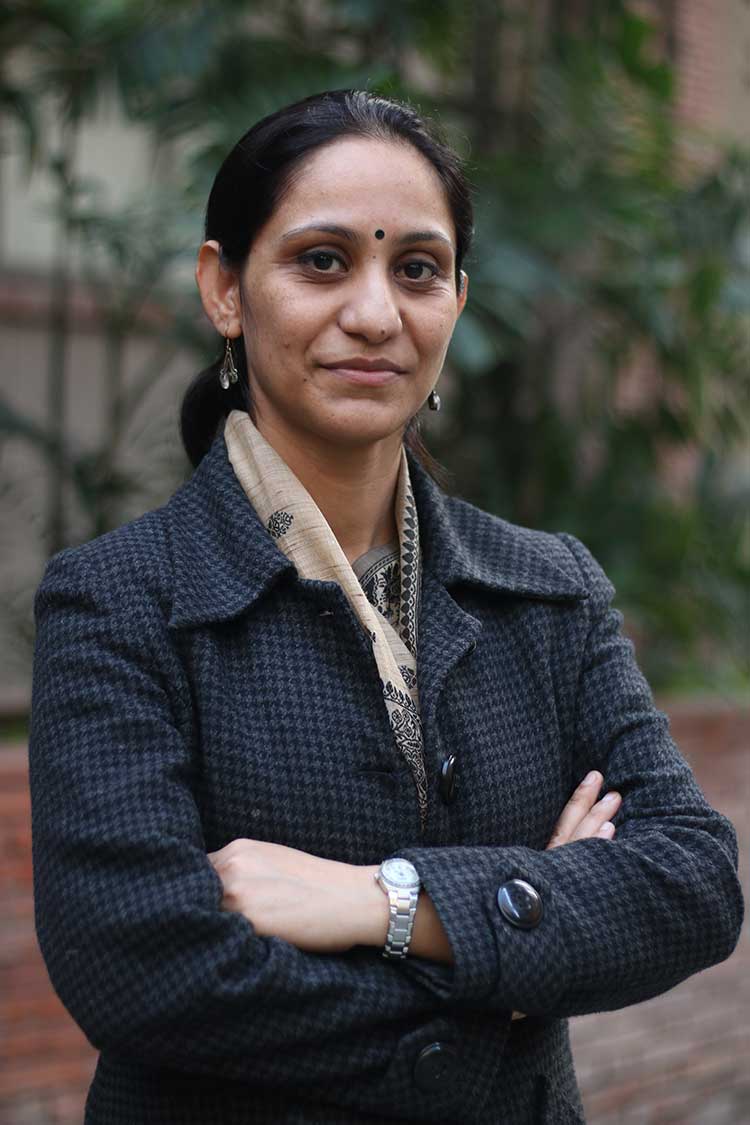Akshima Ghate is a Delhi-based Managing Director, where she leads research, analysis, and partner engagement. She provides leadership to RMI India’s on-going initiatives with the government agencies at national and sub-national level, which aim to transform mobility trajectory of Indian cities to a shared, clean and people-centric path.
Background
Prior to joining RMI India, Akshima was working as a Senior Fellow and Associate Director at the Transport and Urban Governance Division of The Energy and Resources Institute (TERI), New Delhi. At TERI, Akshima led policy research studies focusing on promotion of sustainable and low-carbon development of transport systems for the Govt. of India, state governments, multilateral and bilateral financing agencies and corporate organizations. She has contributed to several important reports of the Government of India and UN. She was a contributing author of the ‘India Transport Report: Moving India to 2032’ prepared by the National Transport Development Policy Committee of the Government of India. She has published several policy briefs, articles, research papers and reports on policy issues related to promotion of sustainable transport. She also serves on several committees set up by the Govt. of India and international agencies.
In the past, Akshima has also been associated with the TERI University as an Associate Faculty and has been taking guest lectures at the School of Planning and Architecture, New Delhi, Institute of Urban Transport (India) and International Center for Environment Audit and Sustainable Development (iCED), Jaipur.
Education
Master in Planning with specialisation in Environmental Planning, School of Planning and Architecture, New Delhi, India
Bachelor of Planning, School of Planning and Architecture, New Delhi, India
Key awards
Goodwill ambassador, Spain-India Council Foundation
Lee Schipper Memorial Scholarship for Sustainable Transport and Energy Efficiency
Location
New Delhi, India
Authored Works
Outlet Blog Post
This article was co-authored by Anand Ganapathy Chennira, Chief Operating Officer, Micelio. It was originally published on CNBCTV18.com. Last-mile 2.0 would essentially need to steer through these unprecedented times by surviving the crisis, transforming and evolving their business strategy, and emerging as resilient businesses when some normalcy returns.
Outlet Blog Post
This article was co-authored by Anand Ganapathy Chennira, Chief Operating Officer, Micelio. It was originally published on ETEnergyWorld. The sector would need to respond, evolve and redefine itself to ensure the Millennials and Gen Z that were starting to accept shared mobility and eschew driving do not get behind…
Outlet Blog Post
The policy by far presents itself as the most comprehensive sub-national policy that adopts a system-wide approach to promote adoption of EVs. The much-awaited Delhi Electric Vehicle (EV) Policy got a final nod from the state Cabinet earlier this week. The policy promises to lay the foundation for transition of…
Outlet Blog Post
Co authored by Clay Stranger, Rocky Mountain Institute. The article was originally published on CNBC TV18. According to a University of Chicago study, exposure to air pollution is shortening life expectancy of Delhiites by a decade. Delhi’s draft EV policy targets 25 percent electric vehicles in new registrations…
Outlet Blog Post
Co-authored by Emily Goldfield from Rocky Mountain Institute. The article was originally published on CNBC TV18. The ministry of housing and urban affair’s (MoHUA’s) DataSmart Cities Strategy, released on February 26, aims to better harness the use of data in addressing complex urban challenges in Smart Cities. Cities…







